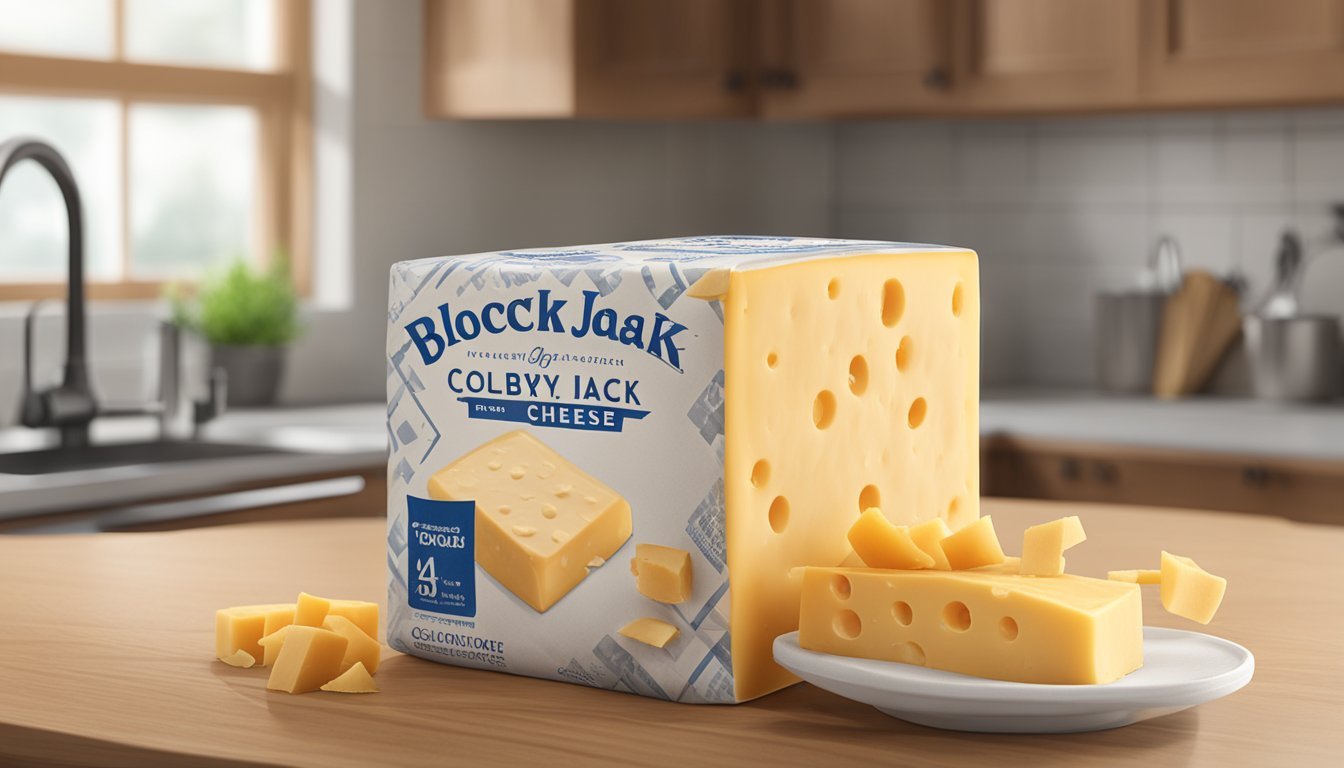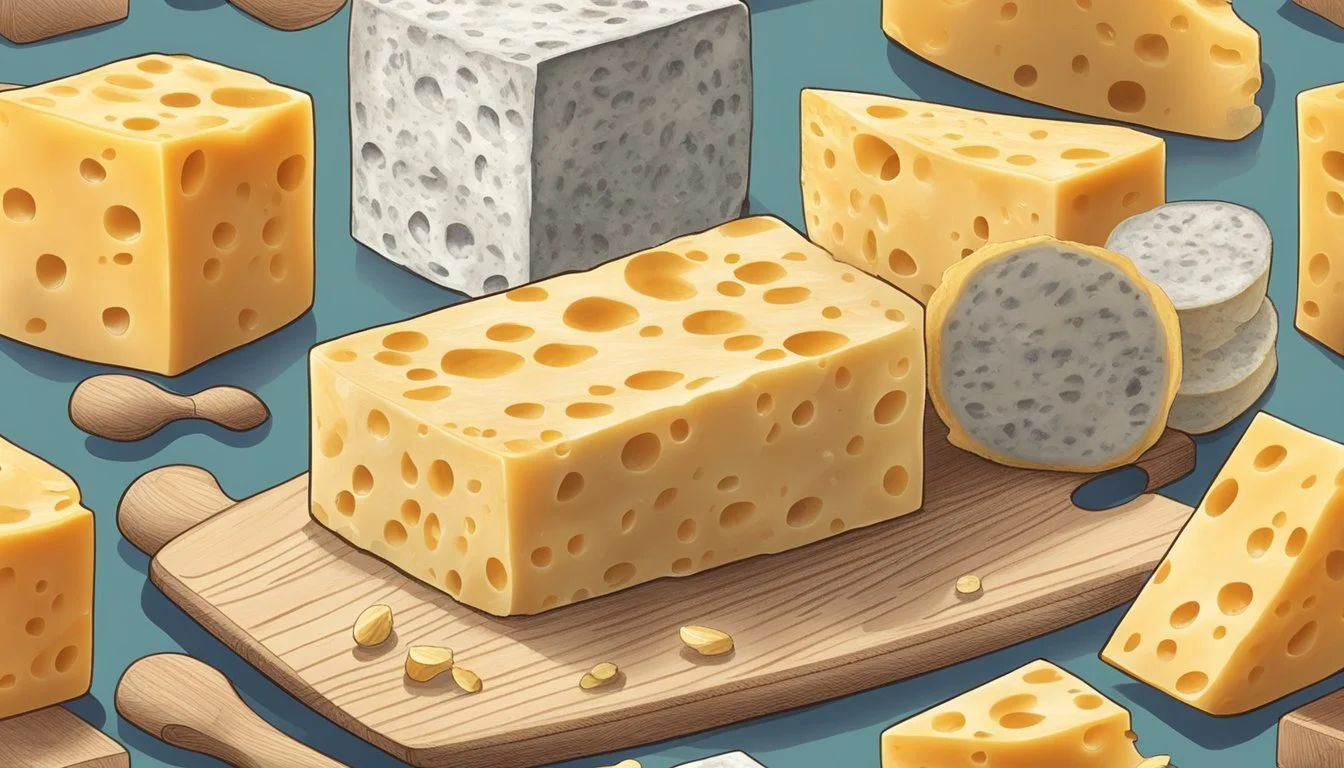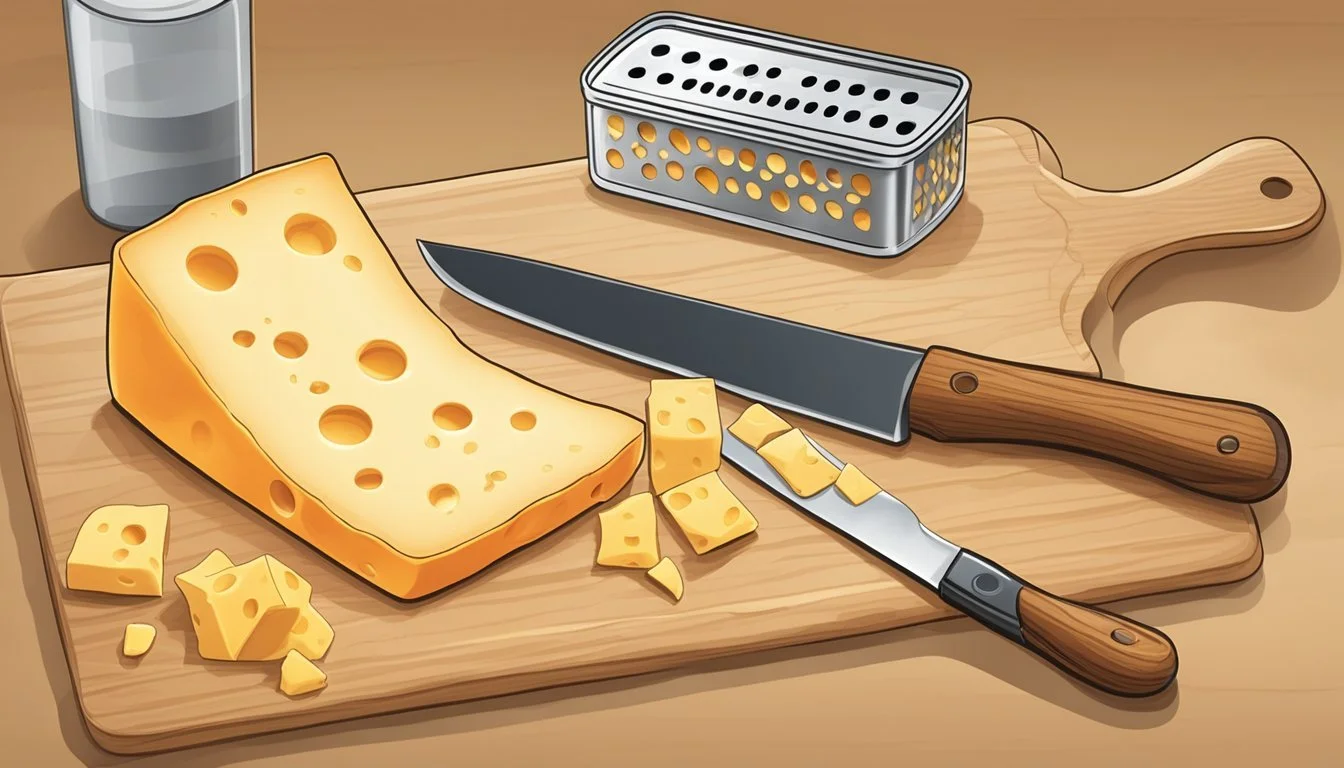Does Colby Jack Cheese Go Bad?
Essential Storage Tips and Shelf Life
Colby Jack cheese, a blend of Colby and Monterey Jack, is known for its distinctive marbled appearance and mild, creamy flavor. Many cheese enthusiasts wonder, does Colby Jack cheese go bad? The answer is yes, Colby Jack cheese can spoil, particularly when it isn't stored properly. Just like any other cheese, its shelf life depends on whether it is opened or unopened and how it is stored.
Unopened Colby Jack cheese typically lasts between 2 to 4 months in the refrigerator as indicated by its packaging date. Once opened, it's best consumed within 3 to 4 weeks to maintain its quality. Proper storage is key to maximizing its freshness—refrigeration is essential, and wrapping the cheese well can help preserve it longer.
When Colby Jack cheese starts to go bad, its texture may harden, and its flavor could develop an unusual bitterness or sourness. If any mold appears or the cheese exhibits an off smell, it should be discarded immediately. Ensuring the cheese is stored correctly can help avoid these issues and allow you to enjoy its delightful taste and texture for as long as possible.
Understanding Colby Jack Cheese
Colby Jack Cheese, known for its unique marbling and mild flavor, is a versatile ingredient in numerous dishes. From its rich history to its many uses in cuisine, this cheese combines the best of Colby and Monterey Jack cheeses.
Composition and Characteristics
Colby Jack Cheese is a blend of Colby and Monterey Jack cheeses, which together create a marbled appearance and mild taste.
Colby contributes a golden or orange color, while Monterey Jack adds a creamy white shade. This cheese is known for its smooth texture and semi-soft consistency. Both cheeses in the mix are relatively young, aged for a shorter period compared to others like Cheddar. The flavor is mild and slightly sweet, making it ideal for a variety of recipes.
History and Origin
The origin of Colby Jack Cheese can be traced back to the United States, specifically the state of Wisconsin.
Colby Cheese was first developed in the late 19th century by Joseph Steinwand in the town of Colby, Wisconsin. Monterey Jack, on the other hand, originated in California. When combined, these two cheeses produce a delectable and versatile cheese known as Colby Jack or Cojack, a portmanteau of their names.
Variations and Uses in Cuisine
Colby Jack Cheese appears in various forms, from shredded and sliced to block and cube. This cheese plays a significant role in different American dishes.
It's particularly beloved in burgers and sandwiches due to its melting properties. Additionally, it enhances macaroni and cheese, casseroles, and soups. Colby Jack also adds flavor to salads, nachos, and sauces. Its versatility in the kitchen makes it a staple for those seeking a mild flavor and smooth texture in their culinary creations.
Quality and Freshness Indicators
The quality and freshness of Colby Jack cheese can be assessed through observable changes in appearance, texture, scent, and flavor. Recognizing these indicators will help ensure the cheese is safe to consume.
Appearance and Texture Assessment
A primary quality indicator of Colby Jack cheese is its appearance. Fresh cheese should have a consistent marbled pattern of orange and white. Any discoloration, such as green, blue, or black spots, generally signifies mold growth.
Texture also plays a crucial role. Colby Jack should feel firm yet slightly springy. If the cheese becomes excessively hard, dry, or develops a slimy surface, these are signs that it may be past its prime.
To monitor mold, regularly inspect for fuzzy patches in various colors. Mold on Colby Jack is often a sign that the cheese should be discarded, especially if it penetrates beyond the surface.
Scent and Flavor Evaluation
The scent of Colby Jack cheese can be a reliable indicator of its freshness. Fresh cheese will have a mild, creamy smell. If the cheese emits a sour or rancid odor, it is likely spoiled.
Evaluating the flavor is equally important. Colby Jack should taste mild, creamy, and slightly tangy. An off flavor, such as bitterness or an overly sharp taste, may indicate spoilage.
Taste testing should be conducted with caution if any other spoilage signs are present. If the cheese doesn't pass sight and smell tests, tasting may not be safe.
Regularly checking for changes in odor and flavor can prevent the consumption of spoiled cheese.
Proper Storage and Handling
Ensuring the longevity and quality of Colby Jack cheese requires attention to how it is stored and handled. This section covers the best practices for keeping the cheese fresh, whether it's at room temperature, in the refrigerator, or in the freezer.
At Room Temperature
Colby Jack cheese should not be left out at room temperature for extended periods. Hard cheeses like Colby Jack can sit out for up to two hours without significant risk.
Leaving it out longer can lead to spoilage and the potential for foodborne illness. Always return the cheese to the refrigerator promptly to maintain its texture and flavor.
Refrigeration Techniques
Proper refrigeration is crucial for extending the shelf life of Colby Jack cheese. When unopened, keep it in the coldest part of the refrigerator, such as the lower shelves.
Once opened, wrap the cheese tightly in plastic wrap or wax paper. Then, place the wrapped cheese in an airtight container to prevent moisture loss and minimize exposure to air. This method helps maintain its freshness for up to two months past the stamped date.
Freezing and Thawing Methods
Freezing Colby Jack cheese can extend its longevity, but it's best to freeze it in small portions. Shredded or sliced pieces freeze better than large blocks. Wrap portions tightly in plastic wrap and place them in a freezer bag or an airtight container.
When ready to use, thaw the cheese in the refrigerator for several hours or overnight. Fast defrosting methods like using a microwave or cold water are less recommended due to potential texture changes. Once defrosted, the cheese should be used promptly for best quality.
Signs and Causes of Spoilage
Colby Jack cheese, like all cheeses, can spoil under certain conditions. Recognizing the signs of spoilage and understanding the factors that contribute to this degradation is critical to ensuring its safety and quality.
Visual and Olfactory Clues
Appearance often provides the first indication of spoilage. Colby Jack cheese may develop mold which can appear as green, blue, or white fuzzy spots on the surface. While some mold can be safely cut away from hard cheeses, it is recommended to discard the cheese if the mold is extensive.
Odor also plays a key role in identifying spoiled cheese. A sour or overly strong smell, different from the cheese's natural aroma, signals spoilage. Fresh Colby Jack has a mild scent; any drastic change indicates the presence of harmful bacteria or spoilage.
Factors Contributing to Degradation
Moisture Content is a major factor. Colby Jack, with moderate moisture levels, is susceptible to drying out and hardening if not stored properly. Excessive moisture, on the other hand, can lead to mold growth and bacterial contamination.
Storage Conditions are crucial. Improperly sealed or stored cheese accelerates spoilage. Colby Jack should be refrigerated at consistent temperatures and kept in airtight packaging to prevent exposure to harmful bacteria and air that can cause deterioration.
Contamination during handling can introduce bacteria that lead to spoilage. Clean hands, utensils, and surfaces reduce the risk.
In summary, understanding these signs and factors helps maintain the quality and safety of Colby Jack cheese, ensuring it remains a delightful addition to various meals.
Health and Safety Considerations
Colby Jack cheese, when handled properly, can be a nutritious part of your diet, but improper storage and consumption can lead to potential health risks. This section highlights key safety measures and consumption guidelines to follow.
Avoiding Foodborne Illness
To avoid foodborne illness, it's crucial to understand the signs of spoilage for Colby Jack cheese. Spoilage indicators include:
Mold growth
Unpleasant odors
Changes in texture
Harmful bacteria such as Listeria and Salmonella can develop in improperly stored cheese. Ensure cheese is stored in the refrigerator at a temperature below 40°F (4°C). Once opened, consume it within 3 to 4 weeks to maintain quality and reduce the risk of contamination. Regularly check expiration dates and discard any cheese that exhibits spoilage signs.
Consumption Guidelines
When consuming Colby Jack cheese, moderation is key due to its content of saturated fat and sodium. Individuals with heart health concerns or on a low-sodium diet should limit their intake.
Recommended serving sizes are typically around 1–2 ounces (28–56 grams). This provides a balance of nutritional benefits, such as calcium and protein, while keeping unhealthy components in check. For those with lactose intolerance, consider lactase supplements or lactose-free alternatives. Proper storage and timely consumption are essential to enjoy Colby Jack cheese safely and avoid foodborne illnesses.
Maximizing Cheese Longevity
To ensure Colby Jack cheese remains fresh and flavorful, it's essential to focus on optimal storage methods and effective preservation techniques. Proper handling can significantly extend shelf life and maintain texture.
Optimal Storage Methods
Storing Colby Jack cheese requires careful attention to temperature and packaging. Refrigeration is crucial; the cheese should be placed in the coldest part of the fridge, typically within a temperature range of 34-38°F.
Using the right materials to wrap the cheese prevents moisture loss. Plastic wrap or wax paper can be effective. Airtight containers add an extra layer of protection by reducing air exposure that can lead to spoilage.
Avoid storing cheese near foods with strong odors as it can absorb these smells. Additionally, ensure the cheese is not exposed to direct air drafts in the fridge, which can speed up drying out.
Cheese Preservation Techniques
For extended shelf life, freezing Colby Jack cheese is an option. Plastic freezer wrap is ideal for this purpose. Before freezing, cut the cheese into portions to facilitate thawing and use.
During the aging process, maintain consistent humidity levels to prevent moisture loss. If mold develops, cut it off with a margin of at least 1 inch around and below the moldy area, ensuring the rest of the cheese remains usable.
Different methods apply to hard and soft cheeses. Colby Jack benefits from regular wax paper changes to keep the surface clean and dry. Proper care prevents hard textures and discoloration, preserving flavor and quality for longer periods.







